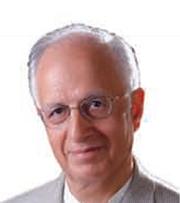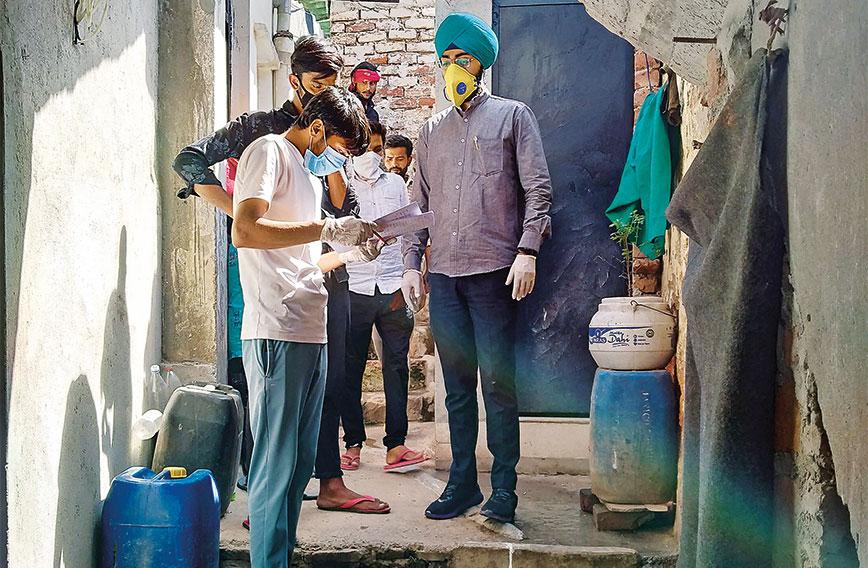
ARUN MAIRA
IMPACT has become an important concept in social entrepreneurship. When more financial resources are deployed to have more impact, the worlds of social change and finance combine, and they clash. Large “impact funds” have formed to improve education and public health, save the natural environment, and for other social causes. They cannot have the desired impact on the lives of people unless they change their theory-in-use of what impact is and how it is produced.
Conventional management science says programmes must be “focused”; money must be used “efficiently”; and progress must be “measured and monitored”. The corporate sector’s professional methods do this well. With finance resourced from the business world, through CSR, philanthropy, and “social venture” funds, corporate methods for delivering standard products on a large scale (fast foods, phones, medicines, etc.) have slipped into the complex world of social change. The corporate approach to scale can deliver large quantities of something or the other that communities need. But they cannot solve problems of persistent poverty, increasing inequalities, and all-round environmental degradation, listed in the Sustainable Development Goals (SDGs).
The SDGs are systemic problems. Systemic problems require ‘systems thinking’ to understand the inter-connections between many problems before jumping too deep to solve any of them. Expertise focused on any one for the sake of scientific efficiency, without understanding how many problems are interlinked, invariably produces “fixes that backfire”, especially on the most vulnerable people. The use of scientific-industrial management methods (SIM) to “scale up” agricultural production has increased the supply of food in India and elsewhere. But malnutrition has not reduced. SIM has produced billions of doses of new vaccines to fight COVID. But less than 5 percent of citizens in poorer countries have received them, whereas over 80 percent in rich countries have (and now are getting a third booster dose).
SIM solutions are created within scientific silos and then scaled up through focused industrial pipes. They increase efficiencies in the use of resources; they do not solve intractable problems of inequity. SIM is infecting the social sector too when providers of finance become engaged with “social impact” causes, albeit with noble intentions. They bring their methods with their money. With SIM methods deployed within NGOs, often by management consultants, and SIM language used on both sides, donors can monitor progress more easily.
Albert Einstein said it is madness to try to solve big problems by applying even harder the methods that have caused the problems. According to the Social Progress Index (SPI), developed by a US-based think tank, the SDGs will not be achieved until 2082 if we continue the methods of solving large problems we are using. The COVID-19 pandemic has delayed SDG achievement by a further 10 years, they estimate.
No doubt, rich and poor countries must collaborate to solve global problems. However, there must be equity in sharing responsibility and in the sacrifices required. The richest one percent of the world’s citizens have added twice as much carbon to the global atmosphere as the poorer 50 percent (Oxfam estimate). It is immoral to now expect the poorer 50 percent to make the same sacrifice to solve a problem created by the over-consumption of the richest few. The side effects of the global “Net Zero” target to reduce carbon emission to mitigate climate change may kill poor people suffering other problems even faster. Rich countries must reduce their own consumption levels and provide sufficient resources to poorer countries for adaptation. Because none will be safe, unless everyone is safe, whether from Covid or from global warming.
Global well-being is suffering from a scarcity of equity, not a scarcity of supply of stuff. Solutions are devised by experts at the top of systems and enforced on the people by powers above, supposedly in the interests of all. Global rules expand monopolies of large agro-industrial enterprises. They protect the intellectual property rights of rich corporations, enabling them to charge prices they deem fair for their own profits that poor people cannot afford. When people resist these ill-conceived and inequitable solutions, they are accused of resisting scientific ideas. Poorer nations are resisting global trade rules devised by Western lobbies in the World Trade Organization (WTO). Indian farmers are bravely resisting new farm laws announced by the central government without consulting them.
SIM is not the solution for global systemic problems. Local systems solutions collaboratively implemented by communities are a better solution for global systemic problems and more equitable too. They are founded on three principles: Systems, Equity, and Local (SEL).
Conceptually, SEL is different to SIM. For SEL:
l More equity, not just more efficiency, is the overarching outcome that new solutions must produce.
l Impact must be measured from the perspective of improvement of all-round well-being of the most vulnerable people, not by the numbers of people provided with products and services.
l Scale is required in outcomes, not in the sizes of enterprises to produce them.
Fundamental shifts in power are necessary in the governance of global and local social systems:
l From the science of technical experts to the wisdom of common people.
l From the wealthy who finance social enterprise programmes and decide their outcomes and design, to the communities on the ground who know which SDGs pinch the most and how.
l From the SIM establishment that sets the rules for global and national policies to local democratic forums in which stakeholders listen to one another, and set the rules with which they will govern themselves for equitable solutions to the complex problems they must solve.
Gandhiji had provided a talisman to policymakers. Think of the impact your solution will have on the poorest person you know before you implement it. It was a principle not for charity — for determining who deserves doles. It was a principle for empowering the most vulnerable people, and experts too. By listening to them with respect, we give dignity to vulnerable people. And by listening to them we also empower ourselves, because we will understand how the system we want to improve really works.
More SEL (systems, equity, local) and less SIM (science, industry, management) will make the world better for everyone.
Arun Maira is author of A Billion Fireflies: Critical Conversations to Shape a
New Post-pandemic World
Comments
Currently there are no Comments. Be first to write a comment!




